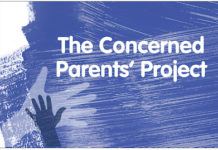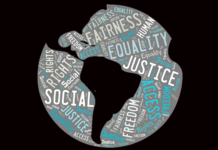Mindfulness-Based Cognitive Therapy is Effective for Current Depression
A randomized, controlled trial by researchers in the Netherlands compared 102 subjects with recurrent depression receiving mindfulness-based cognitive therapy (MBCT) + treatment-as-usual (TAU) with...
NAMI and Robert Whitaker
Fireworks and heated debate were expected by many when Robert Whitaker recently addressed a group at the National Alliance on Mental Illness (NAMI) annual convention in San Antonio, Texas. So why was Whitaker invited to the national NAMI convention and how did it turn out?
Medical Nemesis Revisited: Physician-Caused Anger, Despair & Death
Regaining power over our own health was the goal of Ivan Illich’s 1976 book Medical Nemesis, which detailed an epidemic of physician-caused death and illness. This epidemic continues, and so does an epidemic of physician-caused anger, despair and crazy-appearing behaviors. In 2013, the Journal of Patient Safety reported that the “true number of premature deaths associated with preventable harm to patients is estimated at more than 400,000 per year,” making it the third leading cause of death in the United States It is especially drug use errors, communication failures and diagnostic errors that result in another medical nemesis: They can make us appear—and sometimes feel—like we’re “crazy.”
Psychiatrists Providing Psychotherapy?
On December 29, Nassir Ghaemi, MD, a psychiatrist and a professor at Tufts Medical Center, published on Medscape an article titled Psychiatry Prospects for 2015: Out With the Old, In With the New? In it, he writes that with the changes in health care "Clinicians can stop pretending that relationship and social problems have to be shoved into a biological-sounding DSM category (such as major depressive disorder or generalized anxiety disorder) and treated with the only thing insurance companies would reimburse long-term: drugs." So there it is, starkly stated: Clinicians, by which he clearly means psychiatrists, have been pretending.
Confessions of a Trespasser
In a recently published commentary in Psychiatric Times, Ronald Pies and Joseph Pierre made this assertion: Only clinicians, with an expertise in assessing the research literature, should be weighing in on the topic of the efficacy of psychiatric drugs. They wrote their commentary shortly after I had published on madinamerica “The Case Against Antipsychotics,” and it was clear they had me in their crosshairs.
So Long, and Thanks for All the Serotonin
The serotonin reuptake inhibiting (SSRI) group of drugs came on stream in the late 1980s, nearly two decades after first being mooted. The delay centred on finding an indication. They did not have hoped-for lucrative antihypertensive or antiobesity profiles. Even though a 1960s idea that serotonin concentrations might be lowered in depression had been rejected, drug companies marketed SSRIs for depression even though they were weaker than older tricyclic antidepressants. They sold the idea that depression was the deeper illness behind the superficial manifestations of anxiety. The approach was an astonishing success, central to which was the notion that SSRIs restored serotonin levels to normal, a notion that later transmuted into the idea that they remedied a chemical imbalance.
The Concerned Parents’ Project: 31 Questions
The Concerned Parents’ Project grew out of the idea that there may be parents out there who are confused and bewildered by the mixed messages on what it is to have normal and healthy childhood experiences. We posted a new question and answer for parents each day in March.
The Persistent, Misdirected Search for Causes of Trauma-based Suffering
In the United States and other countries that have a military, there is often a great deal of talk about supporting veterans, but way too often, research aimed at learning what will be helpful is misguided and can even be harmful. The same applies to nonveterans who have been through traumatic experiences. Two new studies exemplify such wrongheaded approaches.
Understanding Psychosis and Schizophrenia? What About Black People?
In many respects it is difficult to fault the report Understanding Psychosis and Schizophrenia, recently published by the British Psychological Society (BPS) and the Division of Clinical Psychology (DCP)[i]; indeed, as recent posts on Mad in America have observed, there is much to admire in it. Whilst not overtly attacking biomedical interpretations of psychosis, it rightly draws attention to the limitations and problems of this model, and points instead to the importance of contexts of adversity, oppression and abuse in understanding psychosis. But the report makes only scant, fleeting references to the role of cultural differences and the complex relationships that are apparent between such differences and individual experiences of psychosis.
“Navigating” Recovery: Difficult When the Map is a Psychiatric Fraud!
I was recently asked to contrast my views on psychosis and recovery with those offered by NAVIGATE, a US government (NIMH) sponsored program aiming to guide early intervention programs for psychosis. This inspired me to inquire into what NAVIGATE does tell people and families about psychosis and recovery. What I found, unfortunately, was quite disturbing.
Dear Boston Globe: You Are the Failure You Describe
When it’s come to those seen as wearing the crown of ‘science,’ journalists have apparently been instructed (or so I’m told) to simply act as ‘translator.’ To question becomes sacrilege, or the act of one who must be ‘crazy’ (or at least hell bent on destroying their journalistic career).
He Cheered on Britney Spears—While Fighting a Guardianship Battle of His Own
From The Washington Post: The aftershocks of #FreeBritney could continue to rattle the American legal system long after Spears’s victory.
Mourning: Death, Loss, Trauma, & Psychotherapy – The Universal Agent for Recovery and Change
There are no set rules for grief. It takes however long it takes, sometimes years, sometimes more. Grieving operates on its own time. The very idea that the DSM-5 gives a two-week grace period before diagnosing a ‘biological depression’ is obscene on the face of it, never mind the handing out of Prozac. Other psychiatrists would like to push the window all the way to three or even four weeks. How compassionate. There is no place for antidepressants, ever
Dear Psychiatry
Dear Psychiatry: We are done with your juvenile black-and-white bullying tactics that argue that because you cannot neatly contain Us in a box of your design that We are somehow the problem.
Aimee Inomata – Long Bio
Aimee Inomata, PhD, is a writer, researcher and reformed academic who uses her training in philosophy and literature to critically analyze the underlying rhetoric...
On Becoming Critical
In order for you to understand where I am coming from, you probably need to know a bit about how I got here. Throughout my psychiatric training I had always, in the back of mind, this question: What is the difference between my suffering and those of my patients? How come they get all this treatment and I got none? Why do they have a ‘brain disease’ (there was a time when I tentatively believed in this sort of thing), whilst I, who was at times symptomatically severe enough to warrant medication, have no brain disease? The answer seems plain to me now. I had suffered exactly in the same way as many of the people I see every day do, but I had been lucky enough to avoid labeling and drugging.
CBT: Part of the Solution, Part of the Problem, an Illusion, or All...
Cognitive behavioral therapy or CBT has been pretty heavily criticized by a number of Mad in America (MIA) bloggers and commenters in the past few years. In a way that isn’t surprising, because most MIA bloggers are looking for radical change, and CBT often appears to be part of the establishment, especially within the therapy world. But while I’m all for criticizing what’s wrong with CBT, especially with bad CBT, I think there’s also a danger in getting so caught up in pointing out real or imagined flaws that we fail to notice where CBT can be part of the solution, helping us move toward more humanistic and effective methods of helping.
Consequences of Taking the Yellow Brick Road: Lithium Carbonate 1984-1996
I was first given Lithium Carbonate in the spring of 1984, and I was taken off Lithium by my attending physician in 1996, but left on other drugs. It took me until 2012 to realize psychiatry is a sham. So often people tell me, “I don’t care what my life is like ten years from now. I only want to feel good now.” I may have said the same thing twenty years ago. Now I have the hindsight to know that my viewpoint back then was juvenile at best. I try to warn other patients these days. It’s hard to joke around about something that kills people.
The Misery of Being Misdiagnosed and Overmedicated
From an early age, relatives and doctors alike had told me I was severely mentally ill. Naturally, I believed them.
The Making of “Guilty Except for Insanity: Maddening Journeys Through an Asylum”
Before entering the field of psychology in the 1970s, I worked as a psychiatric nurse, gravitating to the community mental health movement, and then to anti-psychiatry politics. As a nurse at a psychiatric hospital in Santa Monica, also involved in union organizing and direct action politics with a feminist health collective, I was drawn to the radical wing of community mental health. Decades later, in producing a documentary film on the stories of people who entered the state psychiatric hospital in Oregon under the insanity plea, I had the chance to look back on that era through the lens of a fiction film that had made this hospital so famous.
What’s Eating Oregon? Peer Respites, The Lund Report & Beyond
Peer respites are a precious resource that deserve protection, and implementation that prioritizes the full vision of the model and prevents co-optation.
What Does Social Justice Really Mean for Psychologists?
Without clarity and consensus around what social justice means, psychologists risk perpetuating injustices that undermine their stated mission.
Warming Temperatures Could Increase Suicide Rates
From Medical Xpress: "To tease out the role of temperature from other factors, the researchers compared historical temperature and suicide data across thousands of U.S....
The Temptation of Certainty: David Foster Wallace, Suicide and Psychiatric Drug Withdrawal
While increasing numbers of Americans are being prescribed antidepressants, the Centers for Disease Control reports that suicide rates increased 28% from 1999 to 2010. Trained professionals remain unable to predict who is at risk. Their guess is as good as chance.
The Church of GSKology
Facing a sexual abuse lawsuit, the archdiocese of St Paul and Minneapolis made a big deal of putting an independent panel in place to investigate. They put the Reverend Reginald Whitt in charge of appointing the panel and receiving its reports on behalf of the archdiocese. Rev. Whitt told priests and deacons that the task force may review specific files to determine whether the policies of the archdiocese concerning clergy sexual misconduct were properly followed. But, he wrote, “Access to these files will be within my control, and limited only to what is necessary for the task force.” This sounds terribly like the approach Sir Andrew Witty is attempting to put in place for GSK, AbbVie and the rest of the branded pharmaceutical industry vis-a-vis abuses, including child abuse committed in their name. They are asserting their right to spin their version of what it is you put in your body even though this clashes fundamentally with your right to know what you are putting in your body.


















